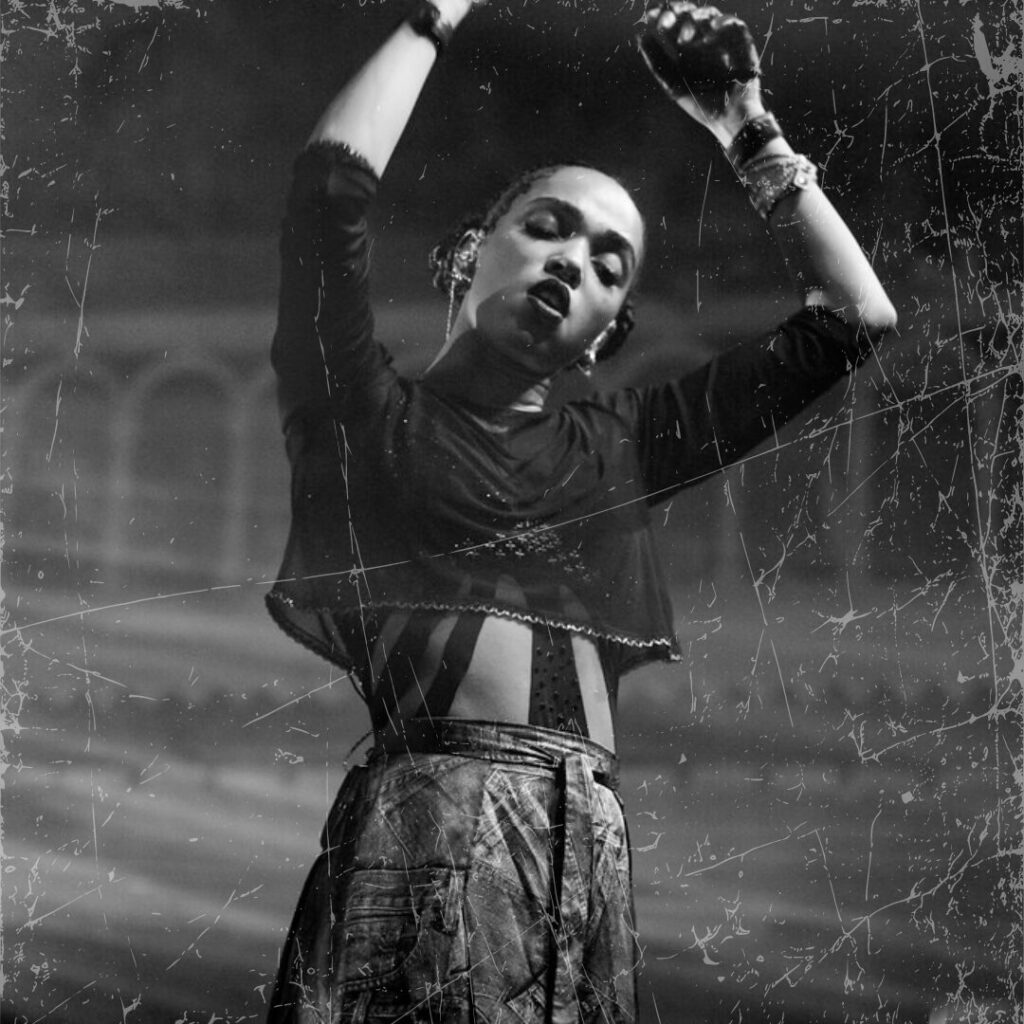It only took four days of 2024 until the internet was nearly broken again by pictures of Jeremy Allen White strutting about on a New York rooftop in his underwear. You only have to look at Google Trends to see the Everest-like peak of Google searches for ‘Calvin Klein Jeremy Allen White’ on the day the advert was released (I may have been part of that statistic).
Disappointingly, it was only ten days in before the powers that be reminded us that we still have a long long way to go in dispelling gender and race stereotypes. The Advertising Standards Agency (ASA) published a ruling on 10 January, censoring a similar Clavin Klein ad, but this time featuring singer FKA Twigs, after receiving only two complaints.
The black and white ad features FKA Twigs posing naked, aside from a strategically placed denim shirt, with the tagline ‘Calvin’s or nothing.’
In a ruling which sounds like it’s come straight from a smut book and would send BookTok crazy, the ASA’s Senior Management team (which, surprise, does not include one person of colour) decided to yuck our yum, by stating the images were likely to cause offence, writing: “Her nudity and facial expression, including a direct gaze and open mouth, gave the image an overall sexual overture.” Does anyone else need a cold shower after that?
Imagine my confusion when I saw that an ad from the same campaign, but this time featuring Kendall Jenner, albeit in an arguably more suggestive pose, was not censored after also receiving a complaint.
Of course, FKA Twigs has since published a response on her Instagram, which is unsurprisingly powerful and eloquent: “I do not see the stereotypical sexual object they have labelled me. I see a beautiful, strong woman of colour whose incredible body has overcome more pain than you can imagine.”
Before we even dip our toes into the alarming nature of the hyper-sexualisation of black women, can we first ask why a woman posing naked has to even BE strong, empowered and in control? When men, including the likes of Jeremy Allen White, can strip off just simply because they are considered attractive?
So why then, even when a woman confirms she felt empowered at that moment, must she be told she is wrong anyway? That men are still choosing to objectify her, and that the power she felt is meaningless?
Banning FKA Twigs’ ad and not Kendall Jenner or Jeremy Allen White’s reeks of gender and race bias. It’s the same bias that causes black women to be type-cast in roles such as the baby mama or stripper, or the same bias that is the reason we often see black women used as twerking accessories in the background of music videos.
Sadly, the hyper-sexualisation of black women has deep roots, which are heavily cemented in racism. During slavery, the idea that black women had insatiable appetites for sex was a way for the white man to justify their continual rape and degradation. This derogatory assumption has only manifested itself in different ways throughout history, following us still, straight into the 21st century. Sexual crimes against black women, with no repercussions for the culprits, did not end after the Civil War, and throughout the 20th century, as media grew, it also breathed new air into the highly sexualised misconceptions surrounding black women.
What does this have to do with the ASA’s decision to ban FKA Twig’s Calvin Klein ad? Well, the blatant inconsistency in censoring Twigs’ empowering portrayal while allowing similar ads from Jenner and White to go unscathed only shines a new light on the industry’s double standards. It underscores the persistent struggle against the hyper-sexualisation of black women and the unjust scrutiny they face. It urges us to confront the uncomfortable truths that persists in following us into yet another year.
Thumbnail Image by Bobo Boom. Source: Flickr.
